Tesla is no longer the world’s largest electric car maker. Should you invest?
Investors need to weigh up the potential of Tesla’s autonomous technology drive against struggles in its core carmaking business when deciding whether or not to invest


Get the latest financial news, insights and expert analysis from our award-winning MoneyWeek team, to help you understand what really matters when it comes to your finances.
You are now subscribed
Your newsletter sign-up was successful
Want to add more newsletters?

Twice daily
MoneyWeek
Get the latest financial news, insights and expert analysis from our award-winning MoneyWeek team, to help you understand what really matters when it comes to your finances.

Four times a week
Look After My Bills
Sign up to our free money-saving newsletter, filled with the latest news and expert advice to help you find the best tips and deals for managing your bills. Start saving today!
Tesla is no longer the world’s largest electric car supplier, having been overtaken by Chinese rival BYD.
Tesla’s (NASDAQ:TSLA) full-year vehicle deliveries totalled 1,636,129 for 2025. That marked a decline of 8.6% from 2024’s numbers, and fell below the 2,256,714 electric vehicles (EVs) that BYD (HK:01211) delivered during the year.
Shares in Tesla fell 2.6% on 2 January, the day the delivery numbers were announced, though they rebounded strongly in the following session, gaining 3.1% on 5 January.
MoneyWeek
Subscribe to MoneyWeek today and get your first six magazine issues absolutely FREE

Sign up to Money Morning
Don't miss the latest investment and personal finances news, market analysis, plus money-saving tips with our free twice-daily newsletter
Don't miss the latest investment and personal finances news, market analysis, plus money-saving tips with our free twice-daily newsletter
That leaves Tesla stock trading around 10% higher than it was 12 months ago. Some investors are now shying away from Tesla; its shares dropped off the list of the most-bought stocks on Interactive Investor during December.
“Tesla is dealing with a series of challenges,” said Victoria Scholar, head of investment at Interactive Investor. “Deliveries fell by more than expected in the fourth quarter and BYD recently overtook Tesla to become the world’s top EV seller.”
The outlook doesn’t look promising assuming that Tesla is being assessed as an EV business.
Growth in passenger EV sales is expected to slow to 12% in 2026, compared to 23% last year, according to Bloomberg.
Global EV sales growth will suffer from a reduction in some Chinese subsidies, US policymakers and consumers veering away from EVs, and Europe considering watering down plans to phase out combustion engines.
But most Tesla bulls take a view that Tesla’s stock isn’t about its EV business.
Can Tesla dominate the world of autonomy?
Those who say that Tesla’s stock is worth buying believe that it is poised to take a leading position in the development of self-driving cars and other forms of autonomy, such as humanoid robots.
Last year saw the launch of Tesla’s long-awaited robotaxi, initially in Austin, Texas, though it has now expanded to San Francisco too (with human monitors in the driver’s seat).
Cybercab, Tesla’s fully autonomous two-person car, is expected to enter production in April, and could be pivotal to Tesla’s future success.
“[Tesla] has started to test the all-important Cybercab in Austin over the past few weeks,” said Dan Ives, global head of technology research at Wedbush Securities. Ives believes that cybercab “remains the golden goose in unlocking Tesla’s artificial intelligence (AI) valuation”.
Ives estimates that the AI and autonomous opportunity is worth $1 trillion to Tesla and that the company will control approximately 70% of the global autonomy market over the next decade.
Is Tesla stock a buy or a sell?
Tesla’s stock currently has a market capitalisation of around $1.5 trillion. Ives believes that progress on robotaxi rollout and cybercab production could lift this figure to $2 trillion – or even $3 billion in his most bullish scenario – by the end of 2026.
But before diving in, investors need to decide whether its growth prospects justify the level it is currently trading at.
Even at its low points, Tesla has been the most expensive Magnificent Seven stock based on its fundamentals for over a year. According to Macrotrends data, the company’s price to earnings (P/E) ratio rose from around 200 at the end of December 2024 to over 300 a year later.
The next highest price-to-earnings ratio in the group is Nvidia’s, at around 47 times trailing earnings – meaning that, in comparison to their earnings over the past year, Tesla stock is more than six times as expensive as Nvidia’s.
Tesla shares closed at $451.67 on 5 January, 50% above ratings agency Morningstar’s fair value estimate of $300.
There is already a lot of assumed good news baked into Tesla’s price: investors need to decide on the relative likelihood of Tesla exceeding or undershooting these expectations before deciding whether or not to invest in Tesla.
Get the latest financial news, insights and expert analysis from our award-winning MoneyWeek team, to help you understand what really matters when it comes to your finances.

Dan is a financial journalist who, prior to joining MoneyWeek, spent five years writing for OPTO, an investment magazine focused on growth and technology stocks, ETFs and thematic investing.
Before becoming a writer, Dan spent six years working in talent acquisition in the tech sector, including for credit scoring start-up ClearScore where he first developed an interest in personal finance.
Dan studied Social Anthropology and Management at Sidney Sussex College and the Judge Business School, Cambridge University. Outside finance, he also enjoys travel writing, and has edited two published travel books.
-
 Should you buy an active ETF?
Should you buy an active ETF?ETFs are often mischaracterised as passive products, but they can be a convenient way to add active management to your portfolio
-
 Power up your pension before 5 April – easy ways to save before the tax year end
Power up your pension before 5 April – easy ways to save before the tax year endWith the end of the tax year looming, pension savers currently have a window to review and maximise what’s going into their retirement funds – we look at how
-
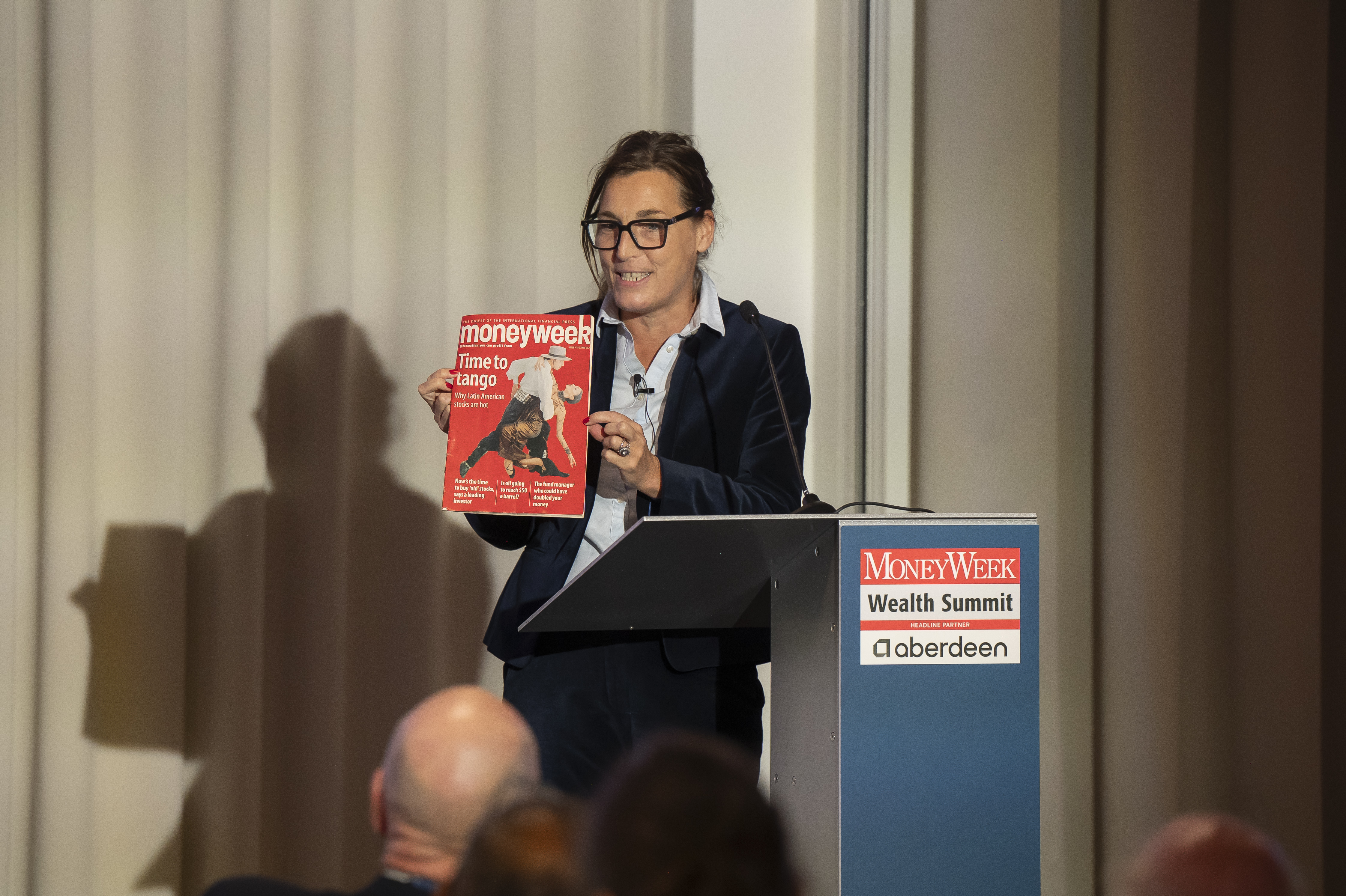 Key lessons from the MoneyWeek Wealth Summit 2025: focus on safety, value and growth
Key lessons from the MoneyWeek Wealth Summit 2025: focus on safety, value and growthOur annual MoneyWeek Wealth Summit featured a wide array of experts and ideas, and celebrated 25 years of MoneyWeek
-
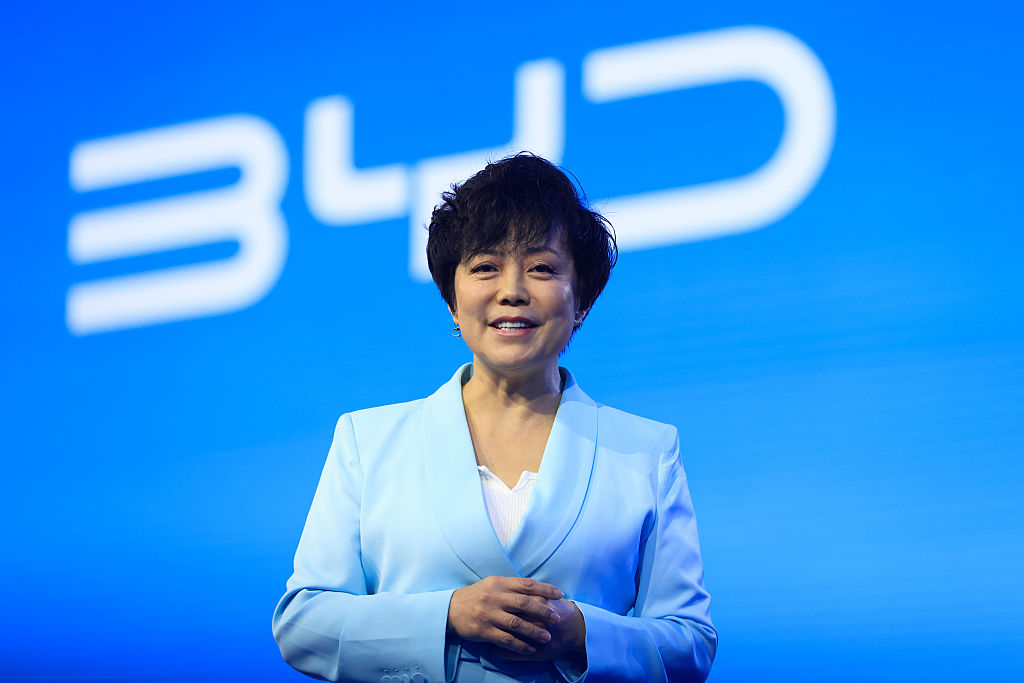 The Stella Show is still on the road – can Stella Li keep it that way?
The Stella Show is still on the road – can Stella Li keep it that way?Stella Li is the globe-trotting ambassador for Chinese electric-car company BYD, which has grown into a world leader. Can she keep the motor running?
-
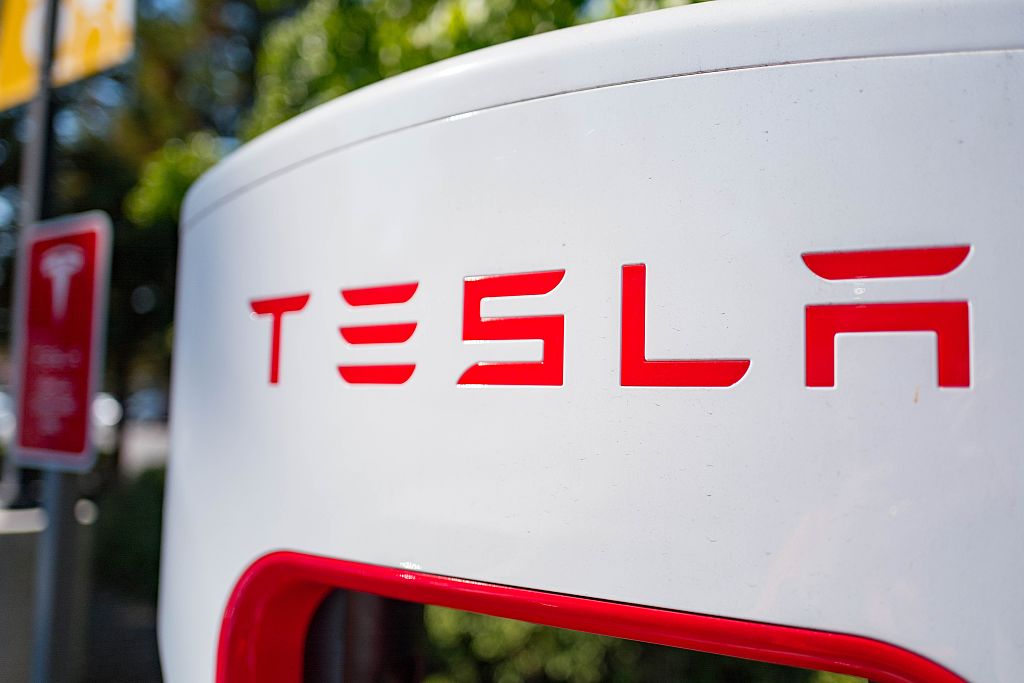 Tesla seeks approval to supply electricity to UK homes – could it disrupt the energy market?
Tesla seeks approval to supply electricity to UK homes – could it disrupt the energy market?Tesla has applied for a license to supply UK households with electricity, but taking on the biggest providers could prove challenging
-
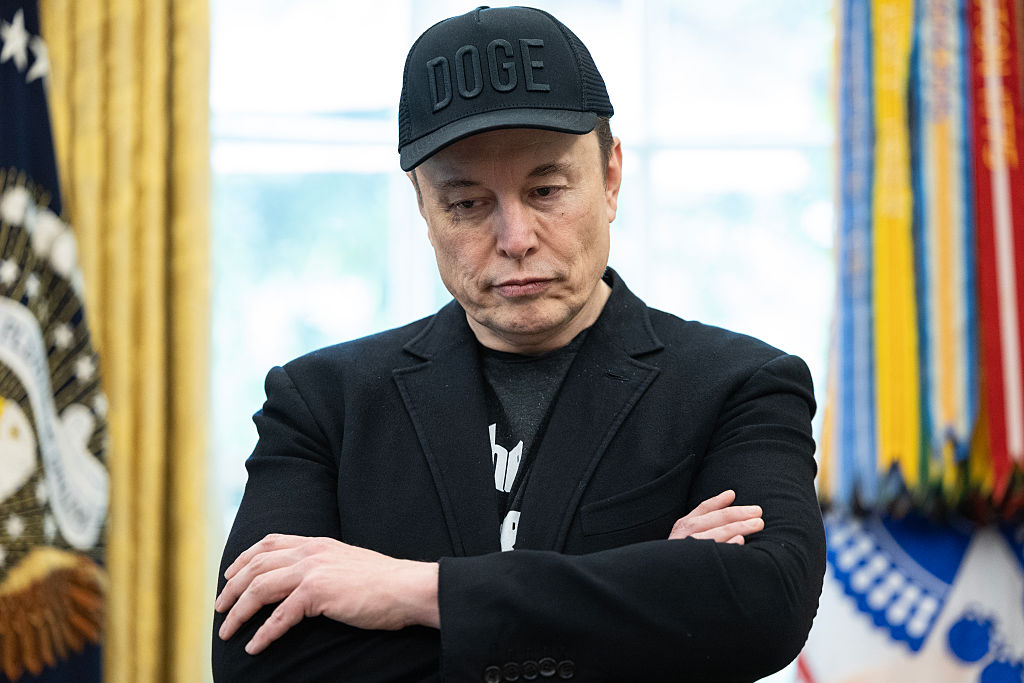 Tesla shares fall after-hours, while Alphabet's gain on earnings beat
Tesla shares fall after-hours, while Alphabet's gain on earnings beatAI positivity drove Alphabet's shares to new heights, but Musk's "rough quarters" warning saw Tesla's share price slump
-
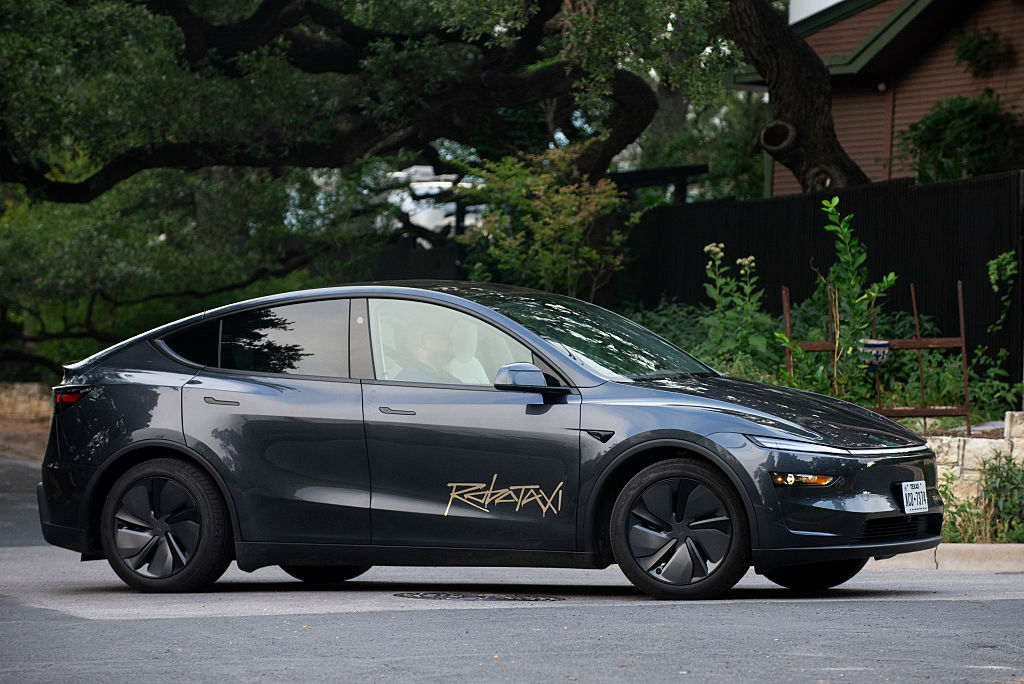 Tesla shares gain on robotaxi launch
Tesla shares gain on robotaxi launchSelf-driving promises have been propping up Tesla stock’s valuation for years, but the robotaxi revolution may have finally arrived
-
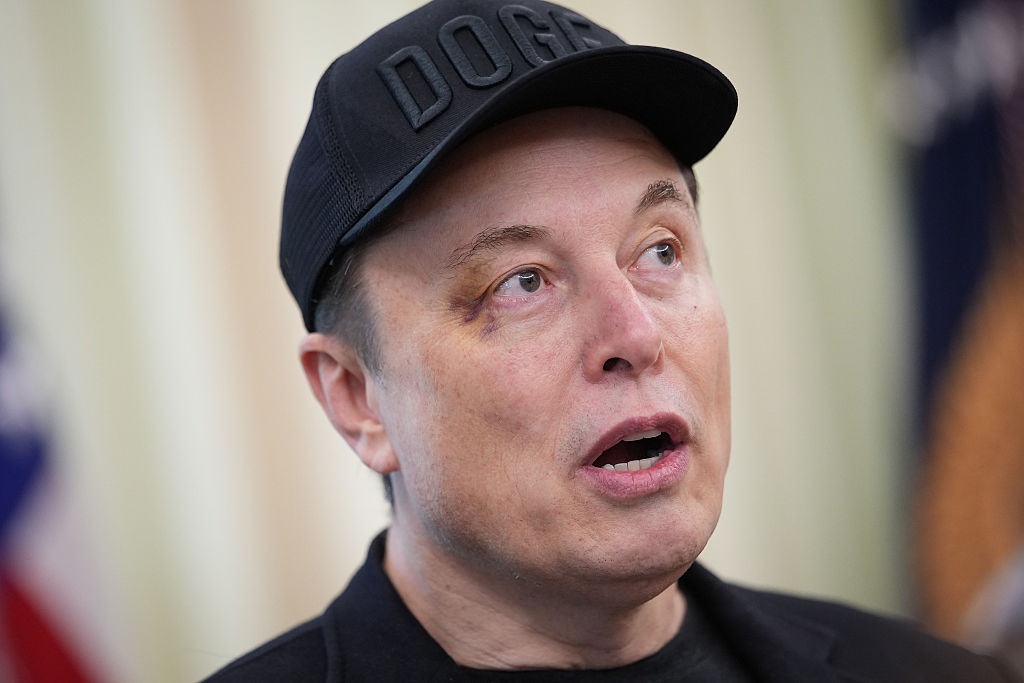 Tesla shares slump over Trump/Musk feud
Tesla shares slump over Trump/Musk feudA war of words has sent Tesla shares spiralling to the company’s largest single-day value decline in history
-
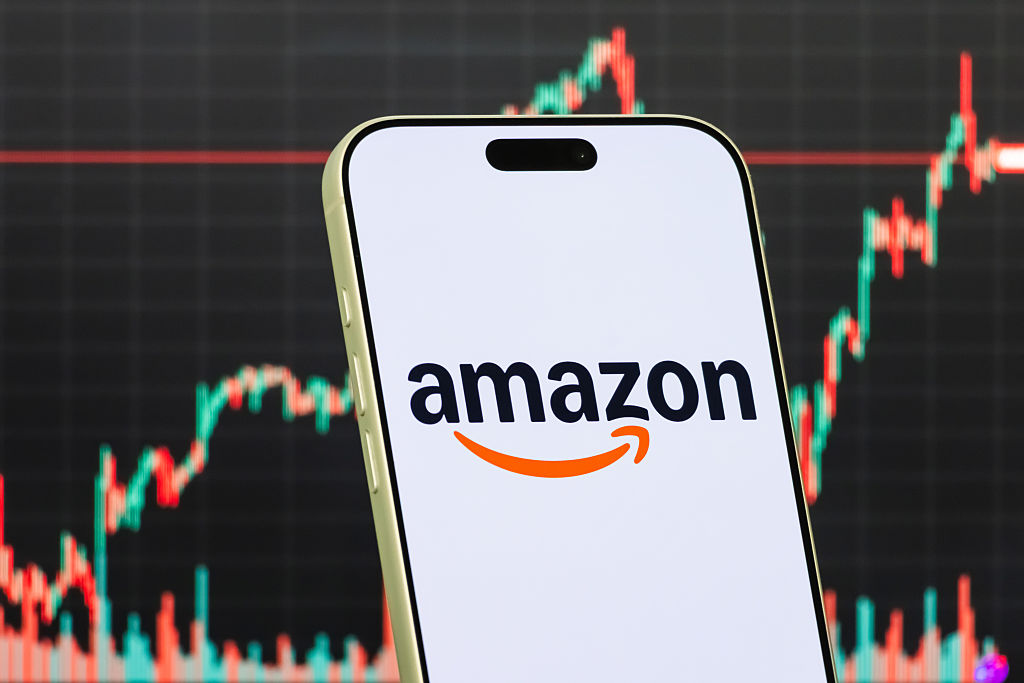 Amazon shares fall on profitability concerns
Amazon shares fall on profitability concernsA big increase in capital spending plans compounded an earnings miss for Amazon following its Q4 results
-
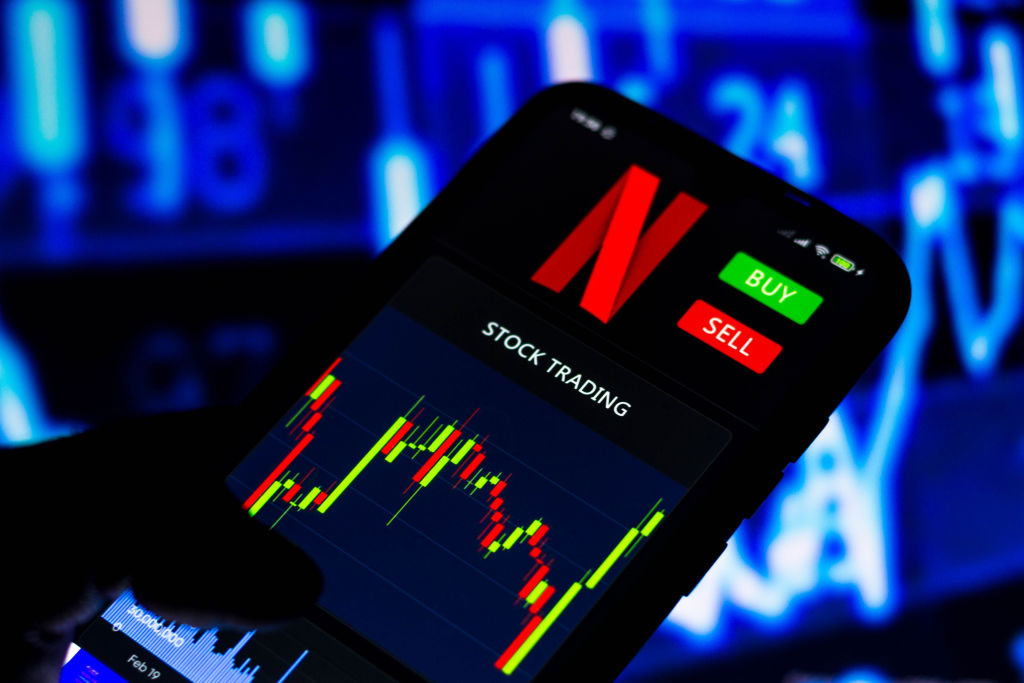 Most popular stocks of 2023: AI on the up while interest in Netflix plummets
Most popular stocks of 2023: AI on the up while interest in Netflix plummetsWe reveal the most popular shares of 2023 so far.